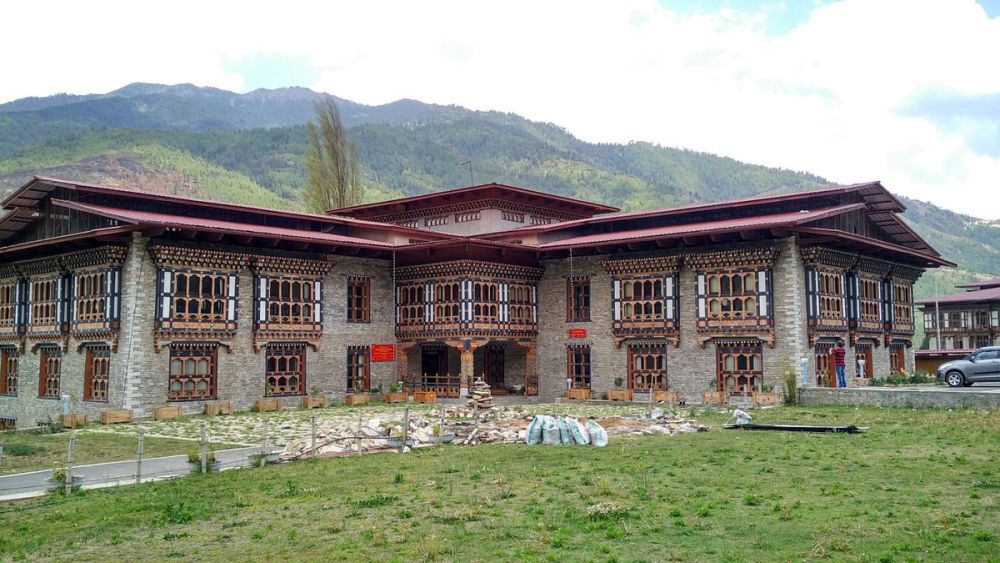

The National Library of Bhutan, located in Thimphu, serves as a reservoir of the rich cultural heritage and history of Bhutan. Inaugurated in 1967, the National Library's primary role is to preserve ancient Dzongkha and Tibetan texts. The striking traditional architecture, extensive collection of Buddhist literature, and serene atmosphere make it a significant cultural and intellectual hub in Bhutan.
The library was initially established with a small collection of precious texts and has since become a repository for all significant works in Bhutan, including many rare and ancient manuscripts. The building was constructed in the traditional style and is adorned with religious paintings and symbols, reflecting the deep spiritual roots of Bhutanese Buddhism. The collection has grown to include works on Himalayan culture, religion, and Bhutanese history, with sections dedicated to both traditional printed books and modern publications.
The National Library of Bhutan has become one of Thimphu’s cultural highlights and is a must-visit destination for tourists interested in the spiritual and historical journey of the nation. Visitors are welcome to explore the wealth of knowledge and heritage preserved in its collections, and it remains a place of study and research for those keen to delve deeper into Bhutanese and Buddhist culture.
Tourism in Bhutan began in 1974, marking the coronation of King Jigme Singye Wangchuck. This step was taken to increase revenue and promote Bhutanese culture and traditions to the outside world. However, the approach to tourism has always been cautious and well-regulated, with a focus on "high value, low impact" to ensure sustainability. The government established a strict tourist tariff that provides for all-inclusive travel packages and, more importantly, mitigates the effects of mass tourism seen in other countries.
Bhutan’s approach to tourism, combined with treasures like the National Library of Bhutan, continues to attract a niche set of travelers drawn to its carefully preserved culture and natural beauty. As the world becomes more aware of the need for sustainable and respectful travel, Bhutan stands out as a leader in balancing the growth of tourism with the preservation of its cultural identity.